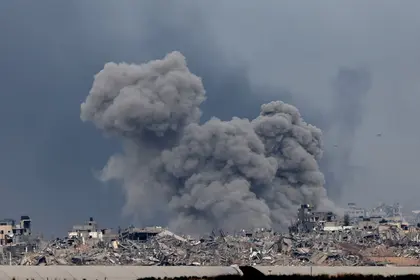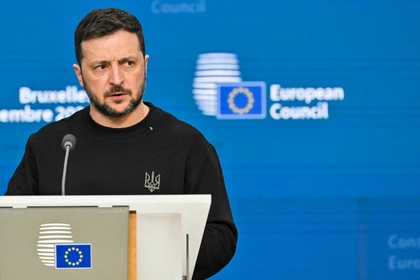Interesting to hear Blinken make the comment after his recent Middle East trip that everyone he met in the region is working to avoid escalation of the Israel - Hamas conflict. It might actually have been nice for him to make the same effort at bringing a resolution of the current war rather than just focusing on avoiding escalation. I think this just underscores that the Biden administration seems to be adrift with respect to its Middle East policy.
And drift in policy from Biden administration on Israel - Hamas war is proving to be hugely damaging to perceptions of US global leadership and more broadly in terms the US’s wider agenda in areas such as Ukraine.
JOIN US ON TELEGRAM
Follow our coverage of the war on the @Kyivpost_official.
The US apparent brain-dead carte Blanche support for the Netanyahu administration for almost anything it does in Gaza (what are the limits?) leaves the US policy of engaging with the Global South to help in its agenda on Ukraine et al in shreds.
Perceptions of double standards abound - a Gazan civilian life seems to many to count for much less than a white Ukrainian life seemingly in the eyes of the US and its Western partners. This resonates deeply in the Global South - evidenced I think by the SA genocide case against Israel being lodged (double standards therein somewhat by SA - why did it not lodge the same case against Russia on Ukraine?).
Notable also to see British Foreign Secretary, David Cameron, left squirming in his answers to pointed questions from the Conservative head of the U.K. parliament’s foreign affairs committee, Alicia Kearns, as to whether Israel has failed in its humanitarian responsibilities to Gazan civilians as the occupying power in Gaza. Cameron struggled not to accept that Israel is conducting war crimes in Gaza.

North Korea Slams US Criticism Over Troops in Ukraine, Calls It ‘Reckless Provocation’
The question is when should the US call an end to Israel’s desire for revenge for events on October 7, and how giving Israel a free rein is delivering on Western security interests.
The longer the US/West stand back and do nothing to bring peace in Gaza:
-
a) the more the US’s global leadership position is damaged.
-
b) the more global support for the US/West in Ukraine is undermined - particularly in the Global South.
-
c) the greater the risk of a wider escalation with global impact - already seeing that with the Houthi’s in the Red Sea. It seems clear that neither the US nor Iran want a direct conflict at this stage but Israel seems to think it has a free hit against Hezbollah in Lebanon and the question is what is the tolerance then from Iran and Hezbollah before they feel compelled to act more forcefully to defend their interests in southern Lebanon. I can see the logic from a far-right Israeli perspective of widening the conflict to bring the US in to a war with Hezbollah and Iran - perhaps finally taking out the Iranian nuclear threat to Israel. But how is this in US or Western interests?
-
d) the risk of wider Muslim anger with the West, a radicalization therein against the West and again feeding the agendas of ISIS, al Qaeda et al. The risk is of terrorist attacks on Western streets.
-
e) broader regional instability - as the Arab street comes out against the inaction of their own governments. Risks therein in places like Egypt, Jordan et al.
Advertisement
Reprinted from @tashecon blog. See the original here.
The views expressed are the author’s and not necessarily those of Kyiv Post.
You can also highlight the text and press Ctrl + Enter






